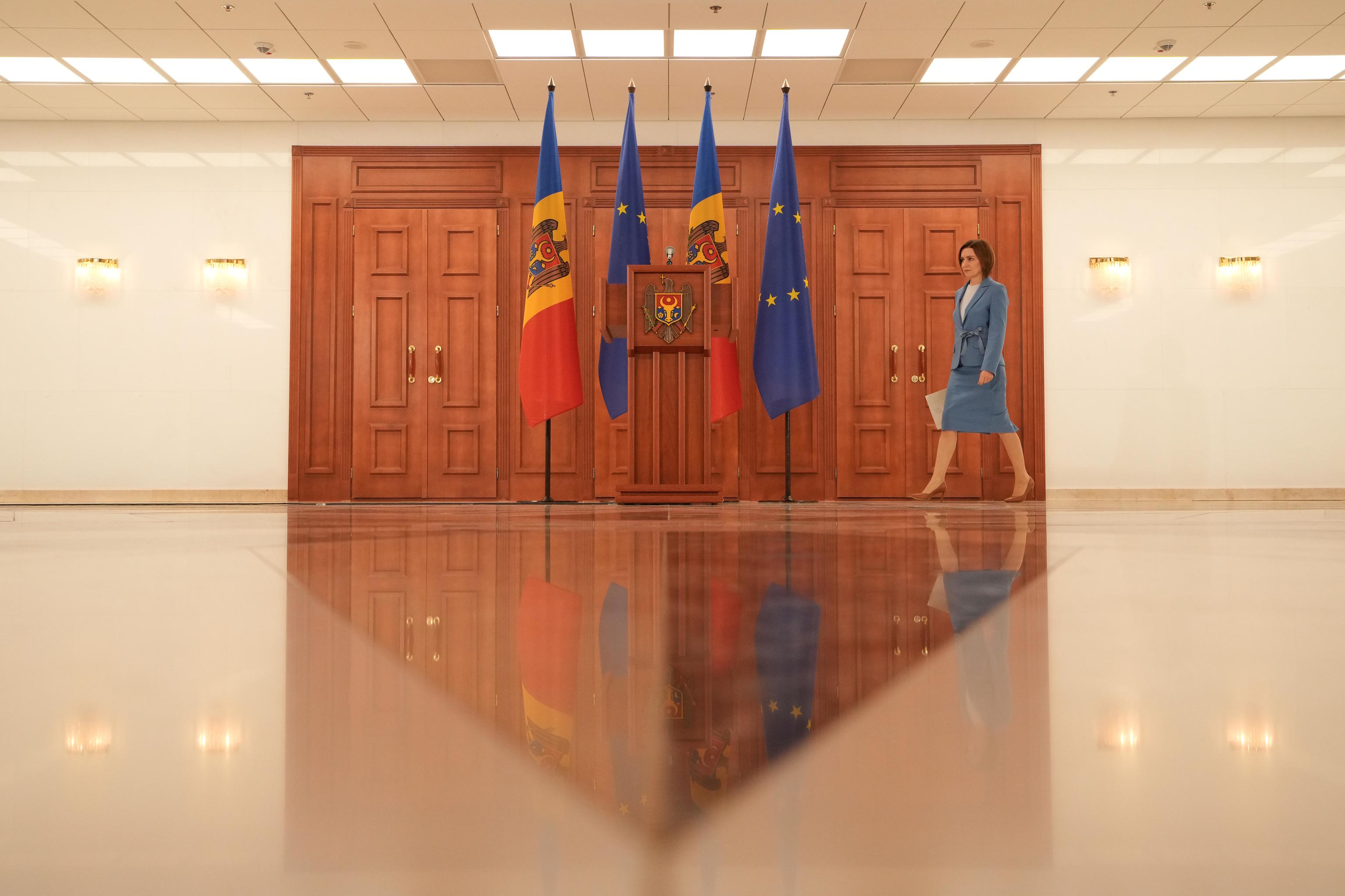The Action and Solidarity Party (PAS) of Moldova's president, Maia Sandu, reaffirmed its absolute majority in parliament in Sunday's legislative elections, refuting the predictions of polls that did not foresee such a resounding victory for the pro-European party.
PAS garnered 50.2% of the votes, allowing them to control around 55 deputies out of a total of 101 in parliament. Although fewer than the 61 they had before, this will still allow them to continue governing independently.
Moldova's president, Maia Sandu, herself considered the outcome as "a strong mandate to (continue) the process of joining the European Union."
Sandu appeared before the press on Monday and stated that the "massive" interference campaign she accused Moscow of had "failed." "The Kremlin tried to divide us, but they have not been able to buy us," she declared.
According to political analyst Laurentiu Plesca, the setback suffered by the pro-Russian option "confirms the limits of (Russian) influence and the inefficacy of their tactics, despite the enormous amounts of money spent on disinformation and vote-buying."
Opposition parties, mostly pro-Russian, rejected the results and called for a protest in front of parliament. The call turned out to be an absolute failure, as it only managed to gather a few hundred people. The mobilization did not even last half an hour.
The main leader of the so-called Patriotic Pro-Russian Bloc - which will only have 26 deputies - former president Igor Dodon, had proclaimed his "victory" immediately after the votes - without knowing the results - and rallied his supporters at night, only managing to gather a handful of followers.
"Be prepared tomorrow (Monday) to defend our victory. It is clear that the opposition will win these parliamentary elections. We must not allow our votes to be annulled," Dodon said, showing little skill as a clairvoyant.
Irina Vlah, another opposition leader, called the elections a "farce." "Moldova is no longer a democratic state. We have a mafia in power that has usurped power," she stated in a press release.
From early morning, the surroundings of the legislative chamber were monitored by dozens of police officers.
"PAS has stolen power from us. Yes, Moldova is divided: on one side is power, and on the other, the people," said Edward, a 57-year-old pro-Russian protester.
This was the same message echoed by Dodon himself and other politicians in his circle such as former Prime Minister Vasile Tarlev, or former Interior Minister Pavel Voicu.
The latter provided this newspaper with a list of alleged irregularities they had observed in the voting process, ranging from the prohibition of parties - up to six formations - to restrictions on options for voters from Transnistria, known for their proximity to Moscow. "There are more than 300,000 of them, and they reduced the polling stations from 42 to 12, and yesterday, on the day of the vote, they blocked the roads leading to those places," he stated.
The number of voters from that region was limited to just over 12,000 compared to the 30,000 who voted in the presidential election last year.
The polling stations designated for Moldovans living in Transnistria were affected by a wave of false bomb threats that multiplied on election day, extending to polling stations set up abroad.
These incidents added to the massive cyberattack that targeted a large number of official websites in the country, especially the Central Electoral Commission's website, which oversaw the elections. According to the IPN agency, technical teams managed to block the digital offensive, which disabled 4,000 websites.
However, the vote once again confirms the division in the country, as PAS votes are concentrated in Chisinau, the capital, and the central and western regions, while areas like Balti in the north - where Russians are the majority - Transnistria - which has been outside Moldova's control since 1992 - and especially the autonomy of Gagauzia, where pro-Russian parties obtained an absolute majority. In the latter, the Patriotic Bloc secured 82% of the votes, while PAS only received a meager 3%.
PAS's triumph slightly altered the electoral landscape seen in the presidential elections and the 2024 referendum on EU integration, managing to prevail in "districts traditionally considered pro-Russian strongholds like Drochia, Soroca, or Falesti, where the majority of voters chose PAS," noted analyst Laurentiu Plesca.
Like last year, PAS's victory was mainly due to the participation of the diaspora - around 280,000 voters - who overwhelmingly supported the pro-European party. Within this community, Sandu's party managed to garner 78.6% of the votes.
As clarified by Plesca on Moldovan television, expatriates ended up determining the fate of around "16 deputies - a decisive number to determine the parliamentary majority - which is impressive."
"The opposition accumulated over 49% (of the votes) in the country, while PAS only received 44%. PAS once again won thanks to what it did outside the country," Dodon had declared in the morning gathering.
The figure referring to the ruling party is accurate, but the 49% includes the rest of the parties that entered parliament, including an ultra-right-wing movement far removed from Dodon's ideologies.
